Over the years, I’ve gathered an impressive collection of South African entry stamps in my passport. Covering this diverse and dramatic country is one of the wonders of my job as a travel writer specializing in Africa. With bucketloads of on the ground experience, I happily share my expertise with you here.
Affectionately known as Bloem (pronounced ‘bloom’), Bloemfontein is one of South Africa’s three joint capitals, alongside Cape Town and Pretoria. The largest city in Free State, which occupies largely flat grasslands to the north and west of Lesotho, it may not be an obvious first tourist destination.
However, this spacious, cultured ‘city of roses’ has enough attractions to keep most visitors busy for a couple of days. Here then are the 15 best things to do in Bloemfontein.
1. Franklin Game Reserve
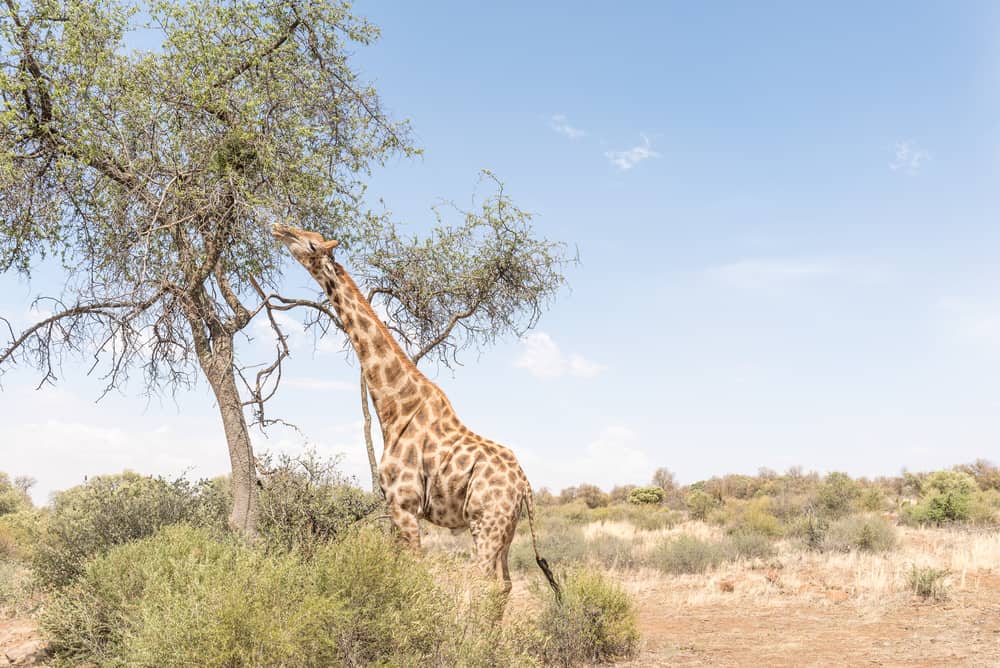 Source: Grobler du Preez / shutterstock
Source: Grobler du Preez / shutterstockGet up close and personal with zebra, wildebeest, and giraffe without the bars of a zoo enclosure or even the protection of a safari vehicle at Franklin Game Reserve. A hilltop reserve completely surrounded by the city, it sits on Naval Hill. Covering 250 hectares, it’s been a unique protected space for nearly one hundred years.
Although traversable by car – its tracks are wide enough to do so – your best chances of encountering its wildlife are on foot. Bear in mind though that it will take at least an hour to circle the site, and tall grasses can limit viewing chances.
2. Oliewenhuis Art Museum
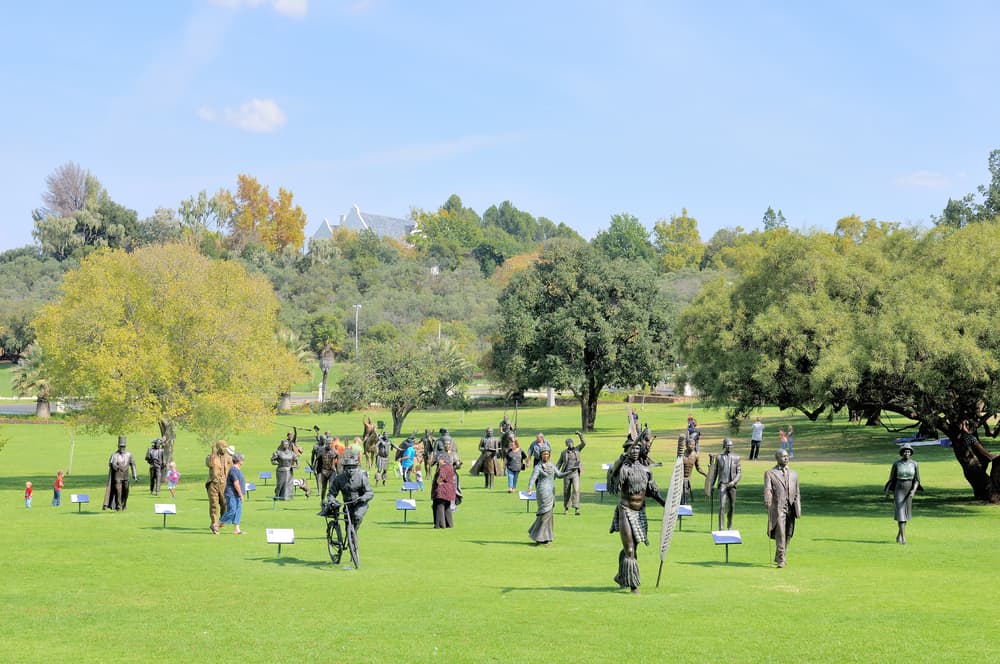 Source: Grobler du Preez / shutterstock
Source: Grobler du Preez / shutterstockA manor house in the Cape Dutch style, the structure housing Oliewenhuis Art Museum was actually only built in 1935 although it looks much older. Becoming the residence of the Governor General of South Africa and then its presidents, it also played host to King George VI and princess Elizabeth – who become Queen Elizabeth II.
Converted into a museum in the 1980s, the first floor of the museum is dedicated to twentieth century artworks, largely by South African artists. Its grassy grounds contain several short walking trails, taking in a number of sculptures of various styles.
3. First Raadsaal
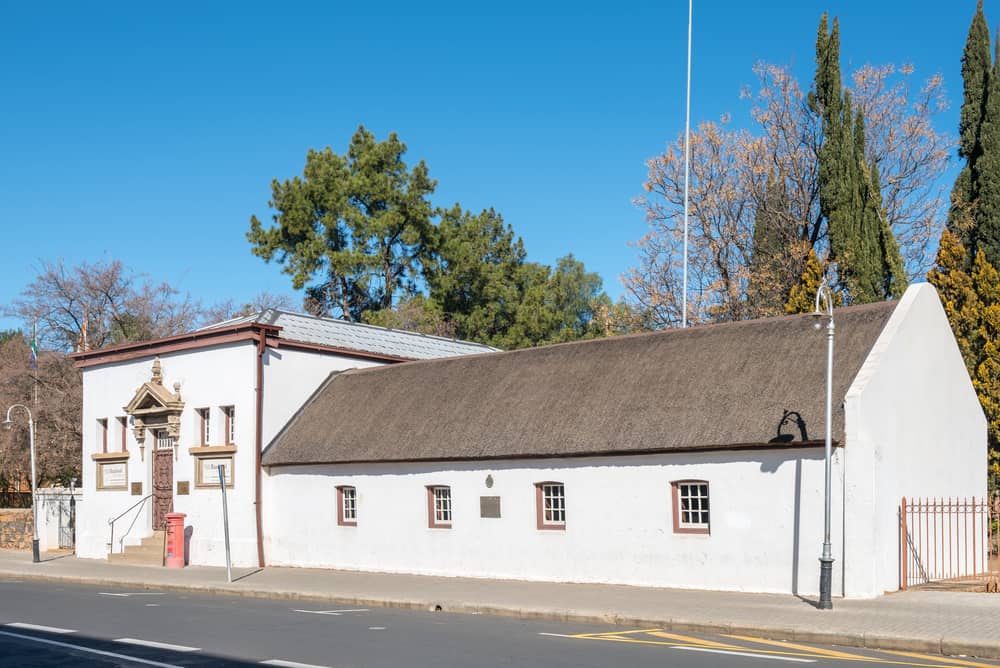 Source: Grobler du Preez / shutterstock
Source: Grobler du Preez / shutterstockLocated centrally on Saint George Street, and almost lost amid more recent buildings, the First Raadsaal is a simple stone and thatch building used as a museum to detail the history of the Orange Free State.
Constructed in 1849 with a pounded dung floor, it acted as the state’s first parliament building, or raadsaal. Now Bloemfontein’s oldest surviving building, its history also includes use as a church and as a school. While on Saint George Street, consider visiting the Wagon Museum next door too.
4. Maselspoort Resort
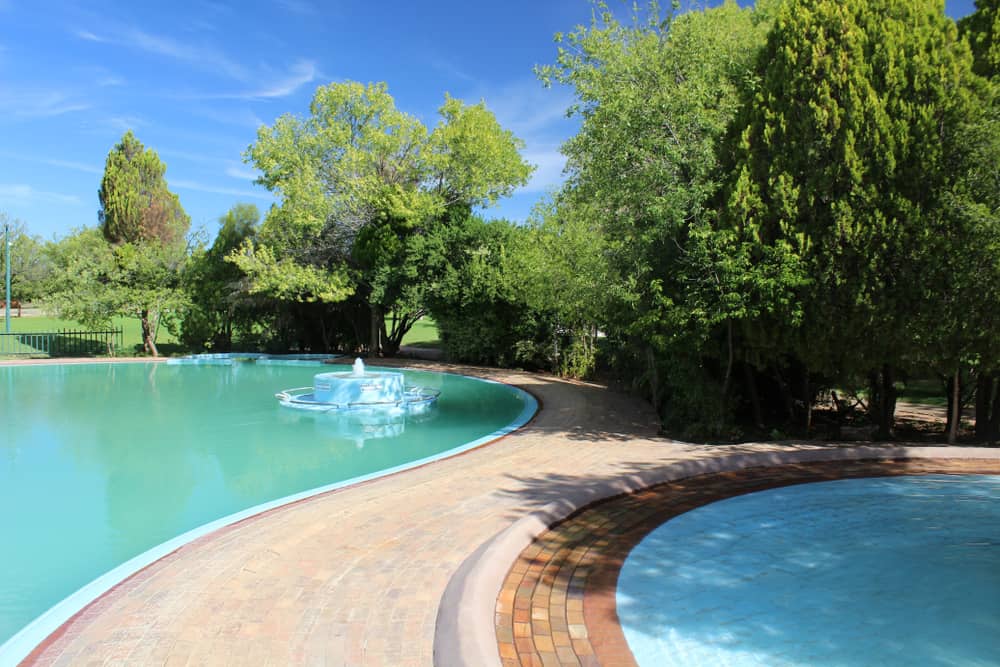 Source: Vladimira Pufflerova / shutterstock
Source: Vladimira Pufflerova / shutterstockIf you’re looking for a few days of rest and relaxation, Maselspoort Resort could be the place for you. Located approximately 30 minutes outside of Bloem, this tranquil area of bushveld has become a renowned place to unwind.
Overnight visitors are able to book one of the plain but comfortable chalets, while activities range from non-motorized water sports to tennis and walking trails. However, its fishing on the Modder River which is very much the order of the day.
5. National Museum
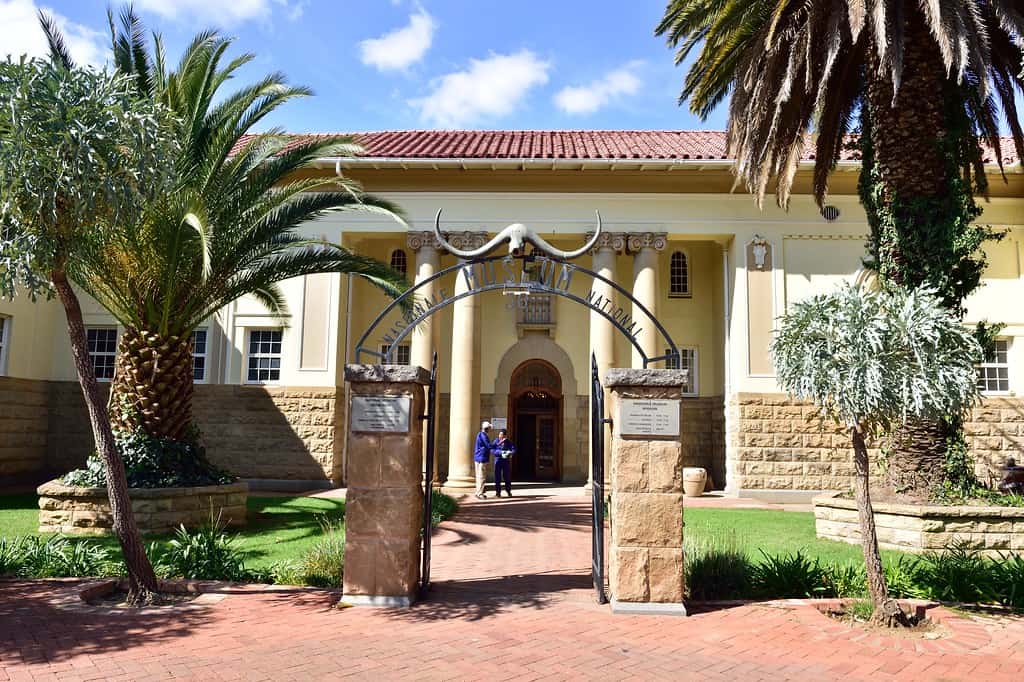 Source: South African Tourism / Flickr | CC BY
Source: South African Tourism / Flickr | CC BYThe National Museum offshoot in Bloemfontein is akin to a natural history museum, with collections centered around life on planet earth. Its large collection of fossils includes the Florisbad skull, which has been vital to scientists studying human evolution.
But its displays also cover archeology, ethnographic exhibits, grander themes including the creation of the solar system, and the recreation of a street scene depicting 1900s Bloem. Just in front of the museum is Hertzog Square, where there’s an impressive statue dedicated to General Hertzog, a key player in South Africa’s political history.
6. Waaihoek Wesleyan Church ANC Birthplace Museum
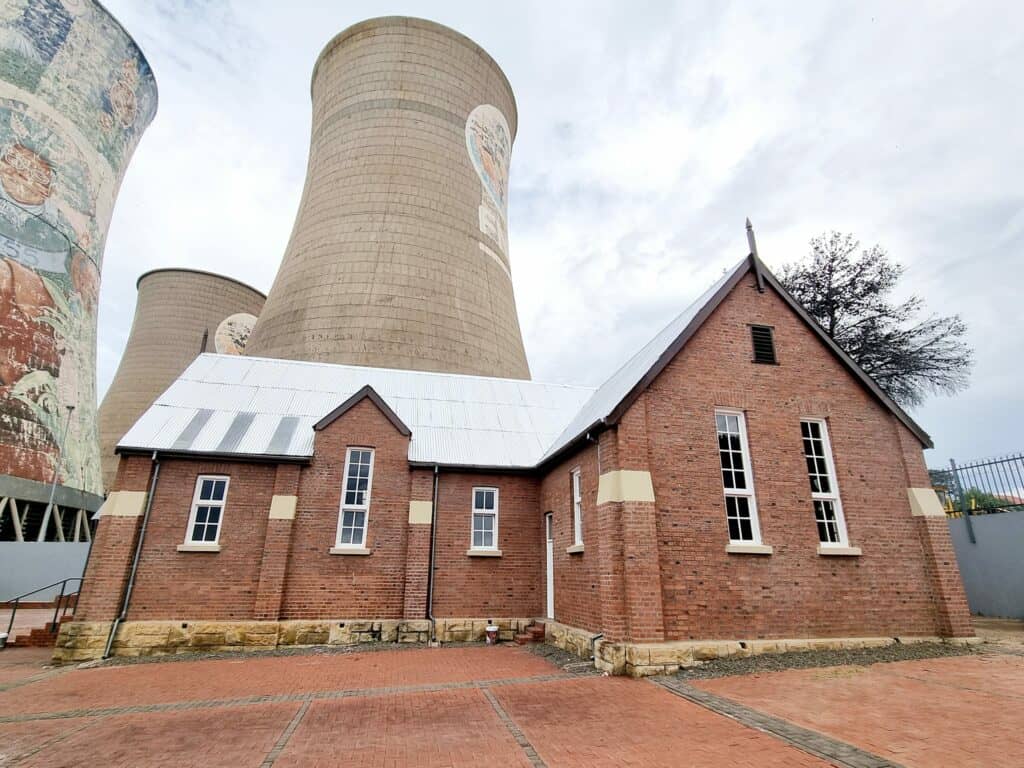 Source: Vincent Sithembiso Khetha / Facebook
Source: Vincent Sithembiso Khetha / FacebookA humble red brick church behind the concrete cooling towers of a city’s power station isn’t usually a tourist attraction. A South African National Heritage Site since 2018, this church is recognized as the birthplace of the Native National Congress, which went on to become the ANC.
The party of Nelson Mandela, and which still governs South Africa, the ANC was founded at this church in 1912 through a meeting of representatives, chiefs, and leading black academics. As such, this church laid the ground work for decades of protest, eventually leading to multiparty elections in 1994.
7. Happy Valley
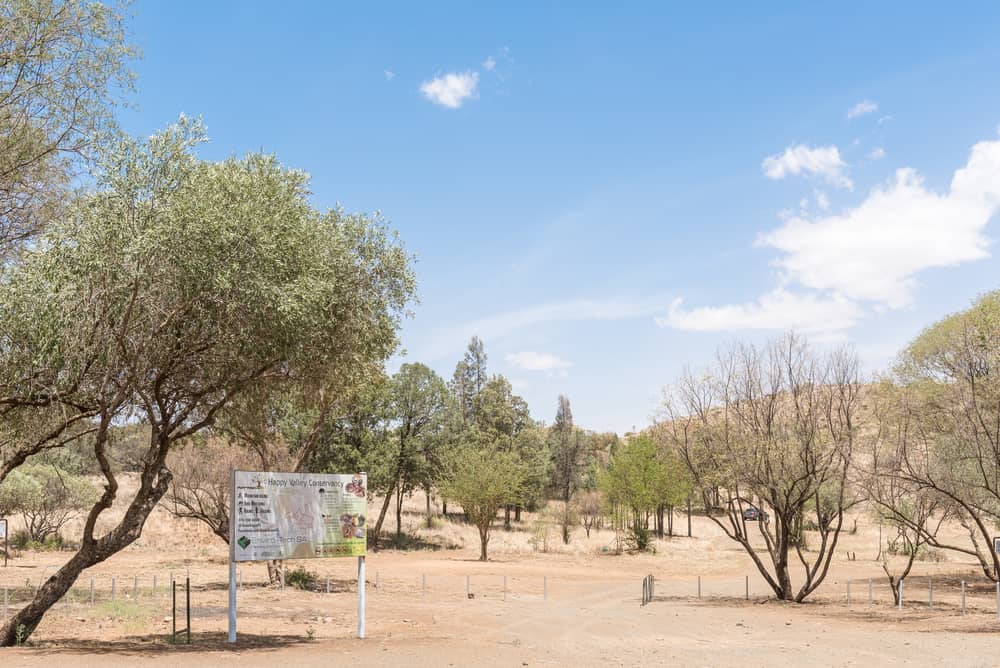 Source: Grobler du Preez / shutterstock
Source: Grobler du Preez / shutterstockOn the eastern edge of Bloem’s Westdene suburb, Happy Valley is a region of untouched natural landscapes used by hikers and off-road cyclists. A mix of hillside grasslands and wooded sections, its trails fall under the general category of challenging, although still easy enough for children as well as hardened walkers to enjoy.
At 2.7 kilometers in length, you don’t have to reserve a whole day to enjoy Happy Valley either. Most people can complete the main walk in around an hour. Although free of facilities, Oliewenhuis Art Museum isn’t all that far away, making a great two center morning or afternoon of attractions.
8. The Old Presidency
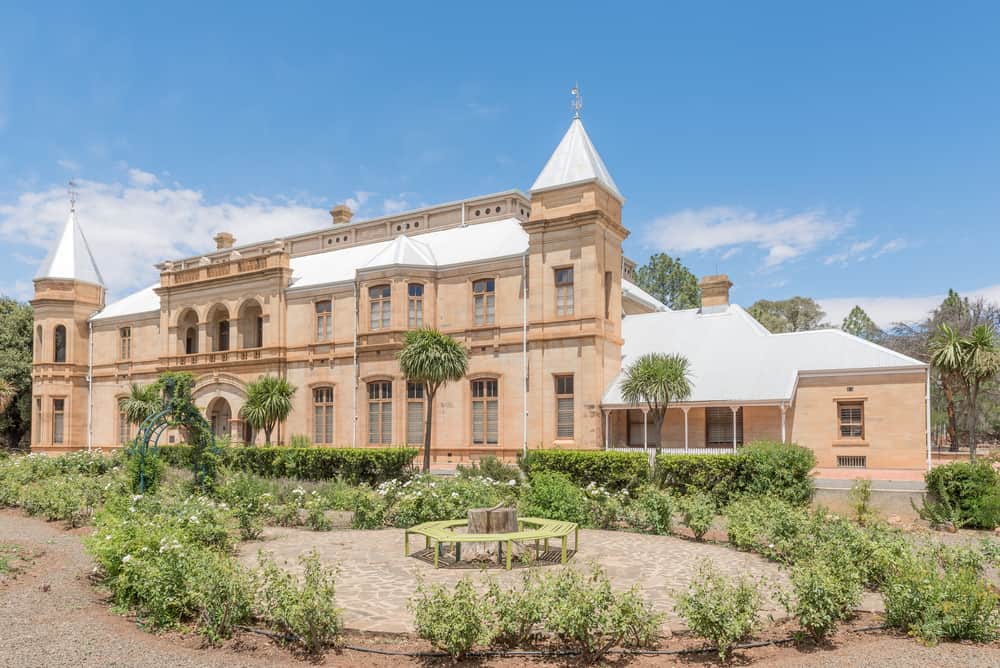 Source: Grobler du Preez / shutterstock
Source: Grobler du Preez / shutterstockImpressively grandiose, the Old Presidency sits on President Brand Street right at the heart of Bloemfontein. Also known in Afrikaans as Ou Presidensie, it was built in the 1880s to act as the presidential residence of the Orange Free State – then an independent nation.
Costing £12,200 to build, it served as the official residence of three presidents before being taken over by the British. Eventually becoming a museum detailing the lives of Presidents Brand, Reitz, and Steyn, it’s worth exploring to discover what life was like in South Africa during this period of the country’s history.
9. National Women’s Memorial
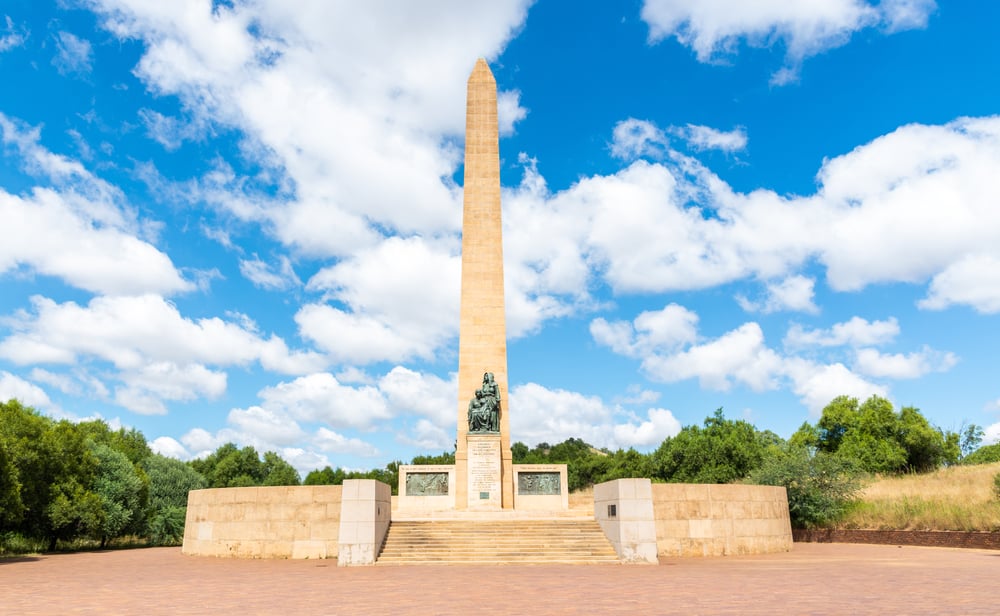 Source: Jurie Maree / shutterstock
Source: Jurie Maree / shutterstockThe National Women’s Memorial is similar in scope to the Washington Monument in DC, primarily comprising of an obelisk of stone blocks. It was built to commemorate the estimated 27,000 civilian Boer women and children of the Orange Free State who perished in concentration camps put together by British forces during the Second Anglo Boer War between 1899 and 1902.
Partly paid for by public subscription, the monument also includes the final resting place of a British woman called Emily Hobhouse. She used her voice to speak out against the treatment of Boer women and called for human rights to be respected.
10. Rose Festival
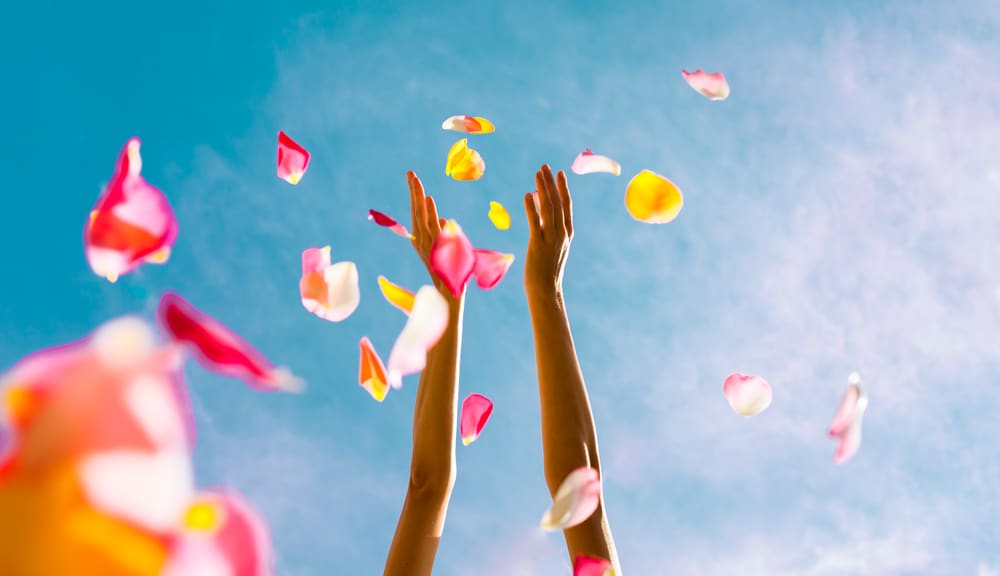 Source: KieferPix / shutterstock
Source: KieferPix / shutterstockTaking place annually in October, the Rose Festival is one of the biggest events of the year in Bloemfontein. Largely taking place at the Loch Logan Waterfront, which sits beside Kings Park Rose Garden, it sees garden lovers from across South Africa descend on ‘the city of roses.’
Besides displays of hundreds of roses, many grown by amateurs, the festival has expanded to include a High Tea, cycle road races of 26, 55, and 106 kilometers in length, and an expo focusing on sustainability.
11. Sand du Plessis Theatre
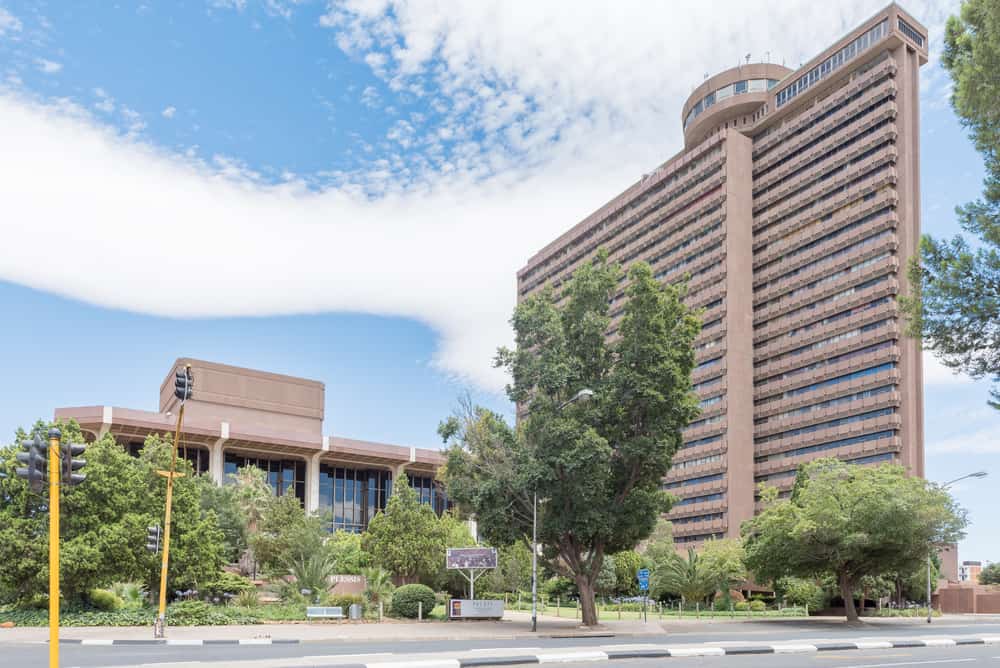 Source: Grobler du Preez / shutterstock
Source: Grobler du Preez / shutterstockA work of art in and of itself, the Sand du Plessis Theatre is one of South Africa’s leading performance spaces. Decked out in marble and bathed in natural light thanks to massive windows, its crisp mid-century style foyer leads to a 1000 seat auditorium which has seen many of the world’s most famous names take to its stage.
Very much part of the community, skateboarders make use of its forms to practice their tricks on the weekends, while tours of the delightful interior can be made by appointment for anyone who isn’t in town when there’s a performance on.
12. War Museum of the Boer Republics
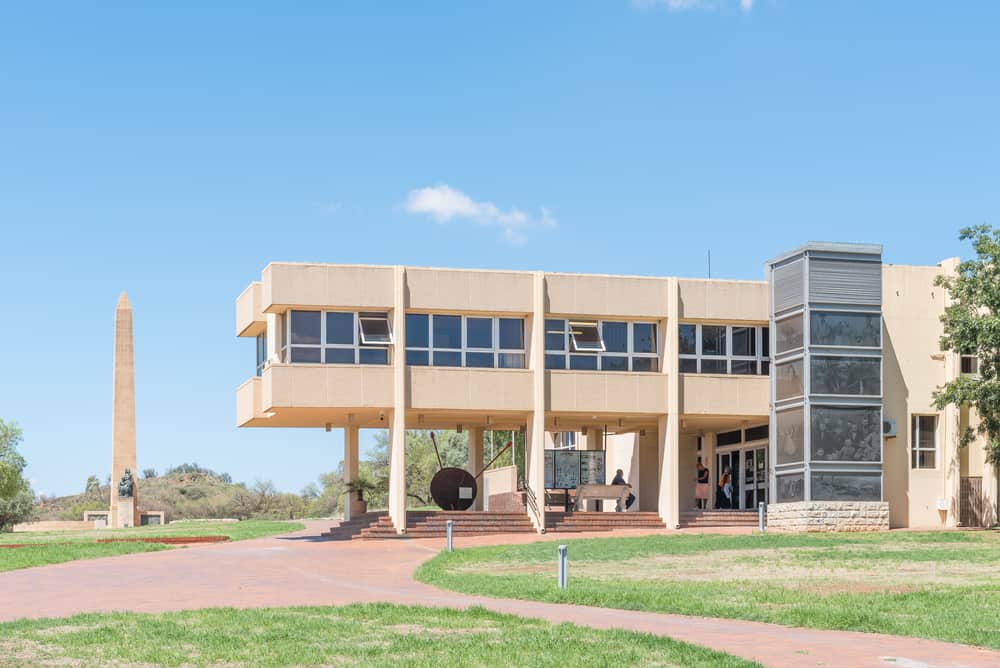 Source: Grobler du Preez / shutterstock
Source: Grobler du Preez / shutterstockBetter known in many guidebooks as the Anglo Boer War Museum, this is the world’s only museum dedicated to the two wars between Britain and the Boer Republics – Orange Free State and Transvaal.
Sited beside the National Women’s Memorial, the museum accounts the causes of the two wars, before going on to explain their main battles and outcomes. Quaintly old-fashioned in its use of dark wood exhibition cases, it is nonetheless an important stop for anyone interested in learning how South Africa came into being.
13. Twin-Spired Church
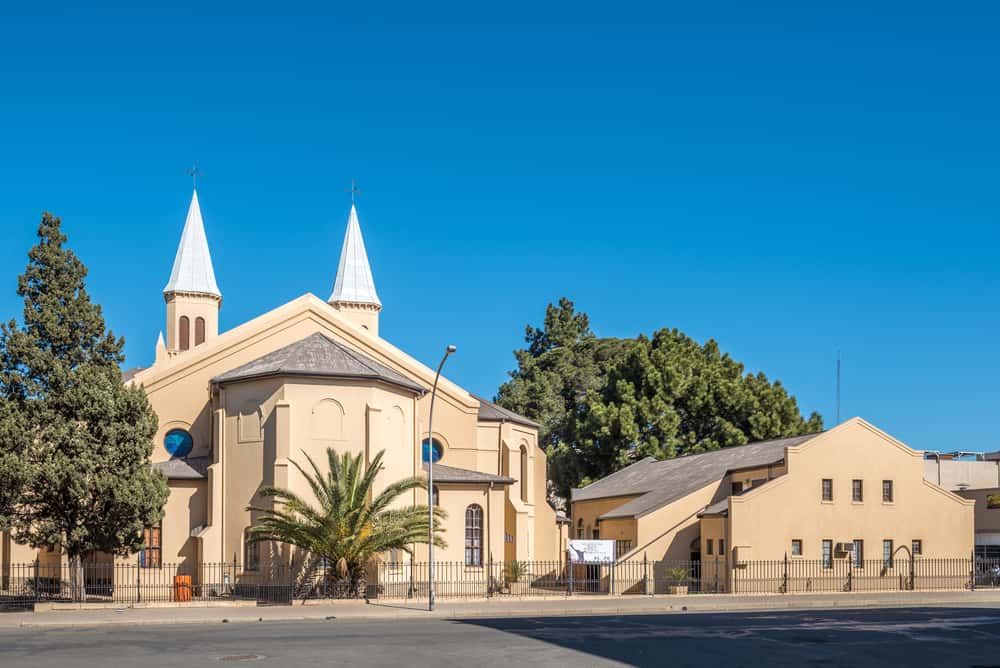 Source: Grobler du Preez / shutterstock
Source: Grobler du Preez / shutterstockTweetoring Kerk in Afrikaans, there’s something a little Disney princess castle about the exterior of the Twin-Spired Church. The slightly jarring form of the steeples comes from the collapse of one and fears for the other, leading to them being shortened in height.
Completed in 1880, it’s the only religious structure of its type in southern Africa, and belongs to the Dutch Reform Church which most Afrikaners adhere to. Now a national monument, the church witnessed the swearing in of the three Free State presidents who resided at the Old Presidency building.
14. Long Tom
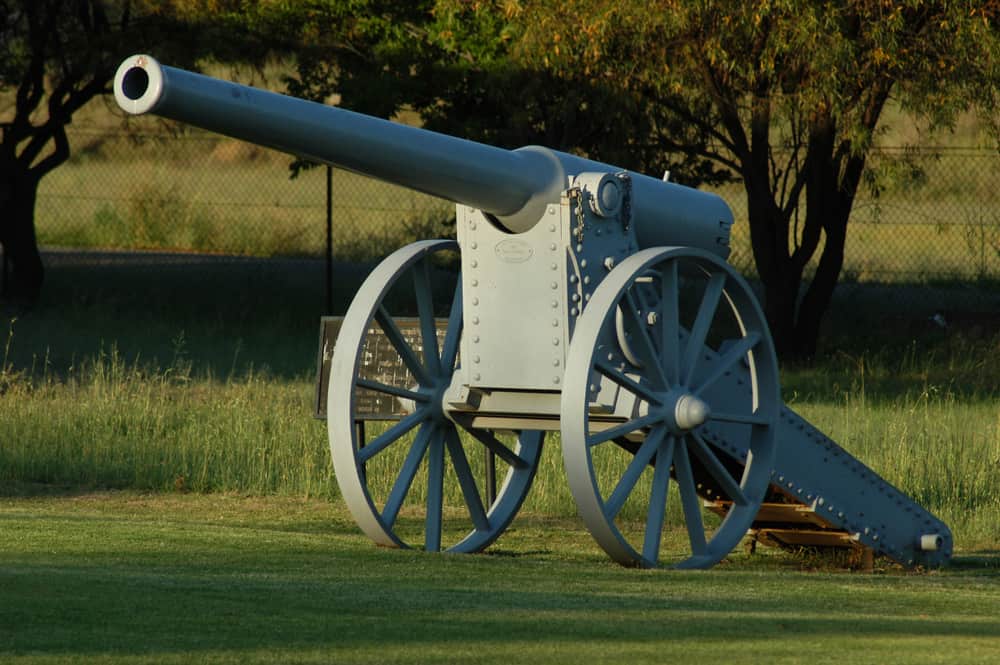 Source: Grobler du Preez / shutterstock
Source: Grobler du Preez / shutterstockLong Tom was the general name given to four large cannon-like guns bought from France by the Boer Republics to defend themselves against British forces. Originally used to protect the Boer capital, Pretoria, they became famous enough that replicas were created, including the one that can be seen on the outskirts of Bloemfontein.
Continue along the same road and you’ll come to the Anglo Boer War Block House. Another reconstruction, this building of stone and sheet iron was probably used to defend the railway line north of Bloemfontein, which continues to connect Johannesburg to Cape Town.
15. Johannes Stegmann Art Gallery
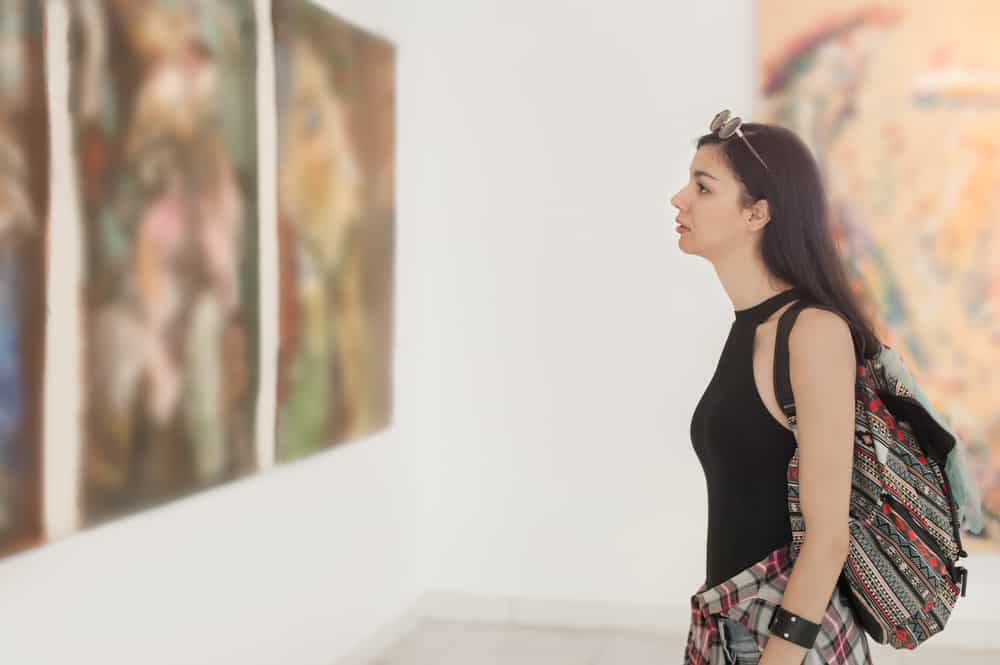 Source: guruXOX / shutterstock
Source: guruXOX / shutterstockPart of the University of the Free State, the Johannes Stegmann Art Gallery combines a small permanent collection of South African masters with artworks by the so-called Bloemfontein group, and those from the town of Thaba’nchu, totaling around 150 pieces.
Come the end of the academic year, the gallery also hosts a temporary exhibition of final year student artworks. Who knows, you might find the next Monet or Picasso among them.
